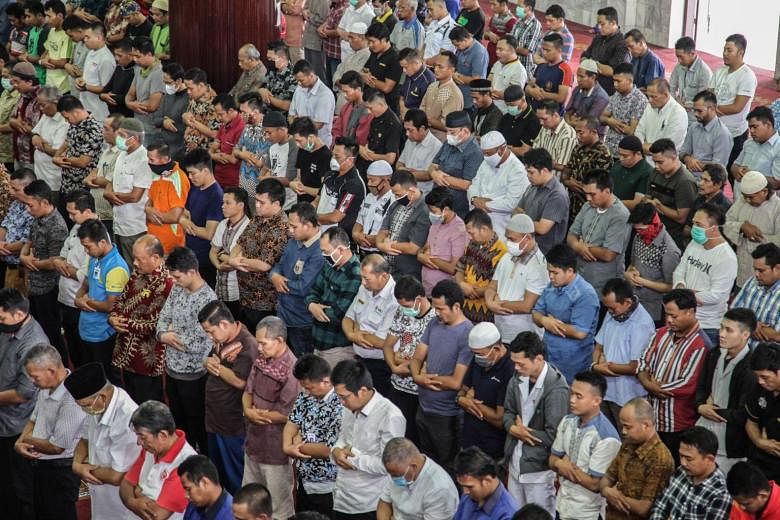JAKARTA (THE JAKARTA POST/ASIA NEWS NETWORK) - Indonesia's Religious Affairs Ministry has issued prayer and worship guidelines for the Muslim fasting month of Ramadan, asking Muslims not to hold joint fast-breaking gatherings and pray at home instead, as part of the country's physical distancing policy to curb the spread of Covid-19.
Ramadan, expected to start on April 23 and end on May 23, traditionally includes gatherings, such as breaking-of-the-fast dinners known as iftar and nightly prayers known as tarawih, usually done at mosques.
Religious Affairs Minister Fachrul Razi said in a statement on Monday (April 7) that these worship guidelines can help prevent the spread of Covid-19 and protect Muslims in Indonesia from the risks of contracting the disease.
The guidelines, issued in the form of a circular, have been distributed to the ministry's regional offices throughout the archipelago.
As the Covid-19 pandemic ravages the globe, with more than 1.2 million infections and 70,000 deaths, the ministry has advised Muslims to not hold joint iftars and pray at home instead.
Indonesia recorded 218 new coronavirus cases on Monday - its biggest daily increase - bringing the total to 2,491 cases spread out in 32 out of the country's 34 provinces. The country has recorded 209 deaths from the virus so far.
The ministry also advised Muslims not to perform itikaf (seclusion in a mosque).
The circular also said halal bi halal gatherings, an Indonesian ritual held following Ramadan as part of the Lebaran - or Hari Raya Aidilfitri - holidays, can be held through video conference or social media platforms.
"Besides containing guidelines for Ramadan and Aidilfitri prayers, the circular also gives directions on zakat (alms) collection and distribution," Mr Fachrul said.
The ministry recommends that officials collect zakat door-to-door.
It also advises that officials regularly clean their offices, practice physical distancing as much as possible and wear masks when collecting and distributing zakat.











